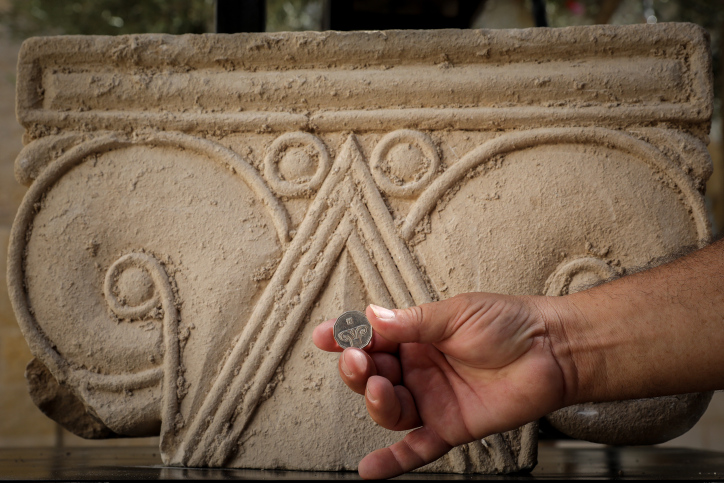
Israel owns the Temple Mount- just ask King David
In writing my latest book looking for hard facts to verify competing claims regarding ownership of the land of Israel, I was reminded of the account of King David, invoking God’s judgment by carrying out his numbering of the people. The Angel of the LORD subsequently appears over David’s own city bringing pestilence.
The account ends with David’s repentance and raising an altar on the threshing floor he purchased from Araunah the Jebusite.
Does the account provide insight into the current contest for ownership of the land of Israel and the Temple Mount? Are there details that might hold up under the scrutiny of a modern-day real estate or business transaction?
Here’s a summary of what I found.
The purchase: The threshing floor. In Mount Moriah, now known as the Temple Mount. 1 Chron 21:18,22; 2 Chron 3: 1.

The seller: Araunah, also rendered as Ornan, the Jebusite. 1 Chron 21:22-24.
The buyer: David, King of Israel. 1 Chron 21:24-25.
The purchase price was fifty shekels of silver for the threshing floor and oxen and six hundred shekels of gold by weight for the larger site, as mentioned in 2 Samuel 24:24 and 1 Chron 21:25.
The date: The only thing missing is the exact date. The rough date of the event had taken place toward the end of David’s reign yet before his death in 970 BC.
There’s a detailed account of a purchase transaction indicating that David, King of Israel, took ownership of land on Mount Moriah, the Temple Mount.
However, could this simply be a Hebrew fable or myth? Also, the source texts are not firsthand originals, they’re later copies. Is the account a fiction of recent times to bolster claims as to who was in the land first?
Interestingly Islamic copies of these Hebrew texts are amongst some of the oldest sources. Muslim Abbasid Caliphate versions, including the Codex Cairensis and Aleppo Codex, date to around 895 and 920 CE.

There are also much earlier sources written in Greek. These include the Codexes: Vaticanus 325–350 CE; Alexandrinus 5th century CE; and Codex Marchalianus 6th century CE.
The content and characteristics of these source documents indicate ownership of the land by David the King of Israel was not something parochial or insignificant.
It was recorded by geographically dispersed societies, such as sources originating in Cairo, Israel, and potentially Rome. Making copies was considered worthy, so much so that they persisted over hundreds of years. The survival of the documents through thousands of years also indicates their value.
Proven historical documents cannot be dismissed as recent attempts to justify ownership.
Does any other group contesting ownership of the land of Israel and the Temple Mount have this level of documented connection? I have not been able to find any.
Applying further scrutiny, the nature of the account could be disputed as a matter of faith and not fact.
What can’t be contested is that the account of the purchase of the Temple Mount has been part of Israel’s cultural tradition, and documented in other cultures, for thousands of years.
This long-term and generational connection of Israel as the owner of the land and the Temple Mount is a legitimate fact.
Julian Warne is a Writer and Author of the Safe Haven military book series that can be found on Amazon.
The post Israel owns the Temple Mount- just ask King David appeared first on Israel365 News.
Israel in the News